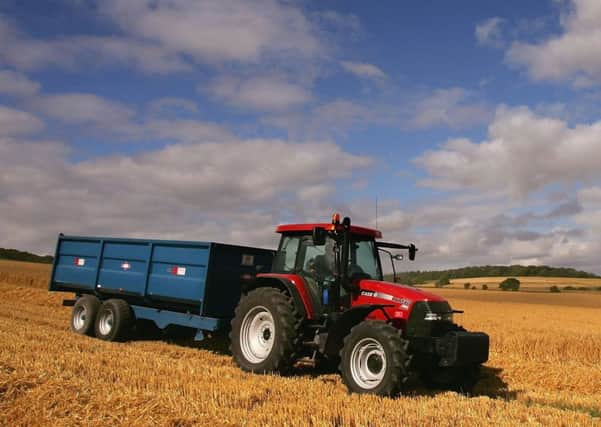Farming industry urged to stake claims ahead of election
This article contains affiliate links. We may earn a small commission on items purchased through this article, but that does not affect our editorial judgement.


And reminding growers that this would be the first time since the 1966 election that they would be voting for politicians who would actually be writing farm policy, English NFU vice-president and industry commentator Guy Smith said that now was not the time for fatalism.
• READ MORE: Farming news
Speaking in Dundee at the AGM of the Scottish Society for Crop Research, he said that it was “incredibly important” that the key role which agriculture played in the economy was pressed home to politicians of all hues.
Advertisement
Hide AdAdvertisement
Hide Ad“We need to take every opportunity to push the importance of agriculture and its key role in the wider food industry – and we certainly shouldn’t assume that we’re too small for the politicians to notice,” he said.
But while Smith warned against the industry becoming the predictor of its own demise, he was under no illusions as to the challenges which lay ahead in setting the scenery for a productive future for the industry.
Stating that getting the right trade deals would be a crucial factor, he admitted that Defra faced some key challenges.
“So far they have been keeping their hands close to their chests – but that might simply be because they aren’t holding many good cards,” he said.
Smith suggested that changes to domestic policy should be phased in over a period of years – pointing out that on entry to the EU, the change from the UK’s deficiency payment to common agricultural policy schemes was phased in over six years.
On the overall challenge of withdrawing from the EU over a two-year period, he said someone had asked why this short time scale had been written into the Treaty of Rome: “And the answer has to be that they thought that it would ensure that no-one would be stupid enough to try to do so.”
Advertisement
Hide AdAdvertisement
Hide AdBut he also voiced fears that recent cuts to Defra’s budget had come at a time when it would be facing an exponential increase in its workload.
Smith also had a warning for those who thought that the current crisis being faced by the arable sector as it faced losses of key crop protection products was of little concern, and who believed that “happy days” awaited, with all such regulatory worries disappearing the day the UK left the EU.
• READ MORE: ‘Time to lobby for crop protection’, farmers urged
“Such an approach is naïve in the extreme – and while you can bank on the fact that we’ll need to maintain strict regulations, it’s a simple fact that no matter the regime, getting pesticides back after they’ve lost approval would be incredibly difficult,” he concluded.